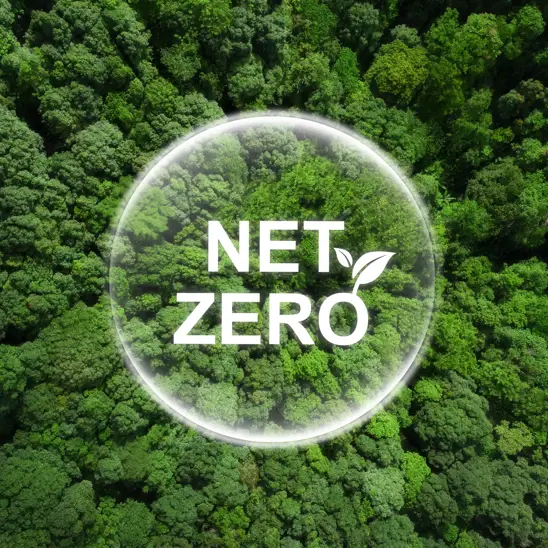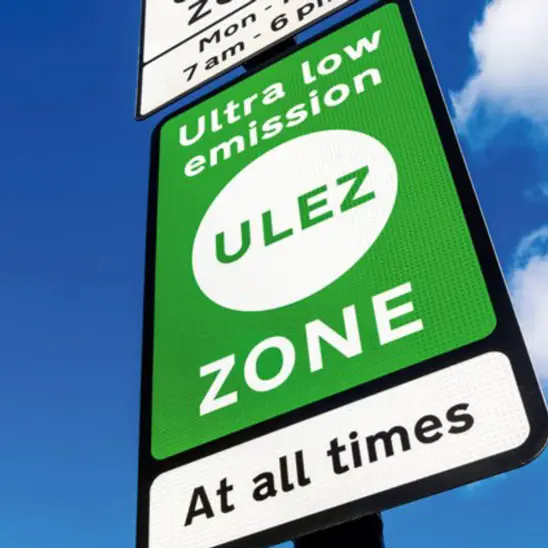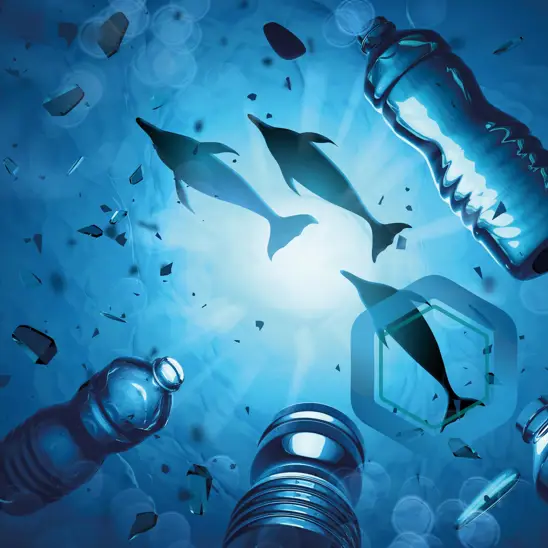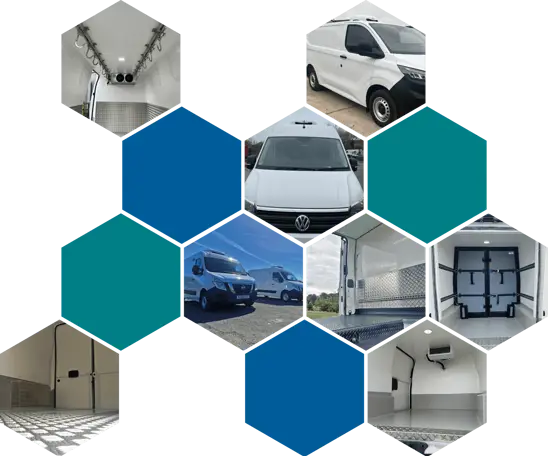
Sustainability
Celsius has been at the forefront of the transition to zero-emission vehicles in the refrigerated transport sector.
Celsius was one of the first refrigerated vehicle converters in the UK to trial battery electric vehicle technology in the temperature-controlled distribution sector.

Innovation Through Collaborative Development
Celsius built a number of prototype electric fridge vans to gather operational and performance data before producing fully operational models, which are now in service with fleet operators across the UK.
More recently, Celsius has been working with van manufacturers, refrigeration specialists, and insulation suppliers to reduce its carbon footprint further. Initiatives include trials with all-electric refrigeration systems and the development of lightweight insulation made from recycled plastic bottles.

Road to Net Zero
As a pioneer in electric fridge van conversions, Celsius continues to lead innovation in sustainable transport. We are actively trialling advanced insulation and refrigeration systems to maximise energy efficiency.
In 2021, Celsius secured part of £20m in government funding to accelerate the rollout of zero-emission refrigerated vehicles. Collaborating with the University of Warwick, Celsius helped bring next-generation electric fridge vans into urban environments where clean air is a priority.
Many of Celsius’ clients operate in the hospitality and food delivery sectors, where the expansion of the Ultra Low Emissions Zone (ULEZ) and congestion charges in cities like London have significantly increased the expense of travel. Investing in clean, ULEZ-exempt electric fridge vans helps cut these costs while aligning with low-emission targets and ESG commitments.

ULEZ Exempt
Celsius’ electric fridge vans are fully compliant with the ULEZ emissions standards, and they are currently exempt from congestion charges – potentially saving fleet operators up to £27.50 per journey into central London.
As corporate carbon reporting becomes mandatory, Celsius is well-placed to meet the rising demand for zero-emission vehicles across national electric van fleets. The UK Government’s Zero Emission Vehicles Mandate is also pushing adoption, with 24% of new van sales required to be electric by 2026.

Strengthen Your ESG Goals with Celsius Conversions
Environmental, Social, and Governance (ESG) performance is becoming a key priority across industries. Celsius makes it easier to demonstrate real, measurable impact through your fleet conversions.
- Our patented lining system uses up to 8,000 recycled plastic bottles per van, repurposing waste into a high-performance, lightweight insulation solution.
- We’ve eliminated fibreglass and timber from our builds to create a more circular, lower-carbon construction.
- Our focus on electric fridge vans and recyclable materials supports emissions reductions across the supply chain, helping you address Scope 3 reporting obligations.
From procurement to day-to-day operation, Celsius supports sustainable performance throughout the lifecycle of your refrigeration electric van fleet.
Recycled and Recyclable
Celsius uses up to 8,000 recycled plastic bottles in a single van conversion, setting a new benchmark in sustainable insulation whilst improving thermal performance.
Our patented lining system has been fully redesigned to eliminate fibreglass use and is now made from 100% recycled plastic that’s also fully recyclable at the end of its life.
This innovative approach is backed by ongoing investment in research and development, reflecting our long-term commitment to practical, low-impact solutions in refrigerated transport.
Lighter weight with improved thermal performance
We use recycled plastic that’s fully recyclable
Lightweight insulation is ideal for electric vans

Looking Forward: How Celsius is Investing in the Future
At the centre of Celsius’ R&D efforts is a £100,000 state-of-the-art temperature-controlled test chamber. This facility allows our teams to maximise thermal efficiency and provides an ideal environment for in-house testing of new insulation solutions and various refrigeration units across different vehicle manufacturers.
Extensive road testing with a range of vehicles and refrigeration units has generated comprehensive data on real-world impacts, including changes in fuel consumption (MPG) post-installation, the effects of fridge units on engine performance, and the comparative benefits of alternatives such as electric refrigeration systems.
By analysing this data, Celsius can offer customers unique insights to help them make informed decisions about their next vehicle conversions.

Get in touch with our team
Celsius are experts at designing and installing bespoke conversions for specific operational demands. Speak to our friendly team for more details.
Frequently Asked Questions about Sustainability
How efficient is the insulation material used in your conversions?
Celsius uses a patented insulation system called Polycore, developed for a precise fit across a wide range of van models. It’s made from recycled plastic bottles, is fully recyclable, and has been independently tested in our temperature-controlled chamber to confirm its thermal performance.
The system also includes modular door insulation to help reduce heat loss through common weak points. Polycore is suitable for both diesel and electric fridge vans, and works well across electric van fleets aiming to improve efficiency while supporting zero-emission vehicle targets.
Can you convert electric vans for refrigerated transport?
Yes. Celsius converts electric vans into fully functional electric fridge vans using a lightweight build method developed in collaboration with Siemens and the University of Warwick. This approach was part of a government-funded project focused on bringing more zero-emission vehicles into urban logistics.
Following successful testing of several prototypes, Celsius now supplies electric fridge vans for operational use. These vehicles are in service with companies across the UK, including those managing electric van fleets in areas affected by emissions regulations such as ULEZ.
How does using eco-friendly or recycled insulation help the environment?
Using recycled insulation materials reduces waste sent to landfills and lowers emissions during manufacturing. It also improves the thermal efficiency of each electric fridge van, helping reduce energy use during operation. This approach supports a circular economy and aligns with the environmental goals of operators transitioning to zero-emission vehicles.
How do sustainable refrigerated transport solutions help businesses reduce their environmental impact?
Sustainable solutions, such as our electric fridge vans and lightweight recycled insulation, can help lower a fleet’s carbon footprint by cutting tailpipe emissions and reducing energy demand. For electric van fleets operating in urban areas, these technologies also support compliance with ULEZ and Congestion Charge schemes, while contributing to ESG targets and carbon reporting requirements.
Can an existing refrigerated van be upgraded with newer, more sustainable technologies?
In many cases, yes. Depending on the vehicle and its configuration, older refrigerated vans can be retrofitted with improved insulation or updated with more efficient refrigeration units. Our team can assess the options and advise whether upgrades could support a move toward electric fridge vans or improve overall performance in line with zero-emission vehicle goals.